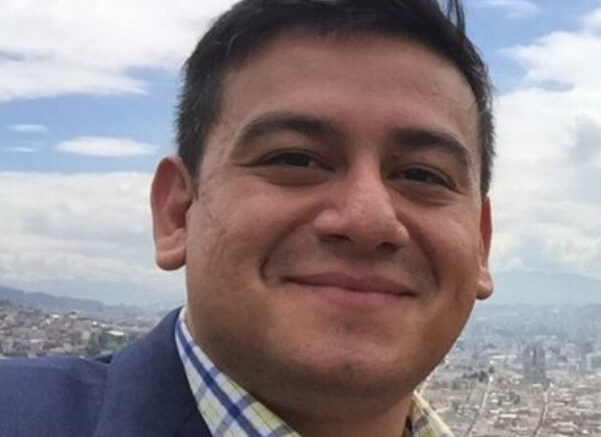Mexican journalist José Luis Granados Ceja visits the Triangle
By Sharmîn Aziz
On October 21st and 22nd, José Luis Granados Ceja visited Durham and Raleigh as part of the “Mexico Solidarity Tour.” José Luis lives in Mexico City, where he is a journalist, political analyst, and human rights advocate.
The Durham event was in Spanish at the People’s Solidarity Hub, and the Raleigh event was held in English at the Raleigh United Mutual Aid Hub. Both were coordinated by the Triangle Democratic Socialists of America.
At the events, José Luis discussed issues pertaining to Mexico’s sovereignty and MORENA’s policies for the betterment of the working-class. MORENA (Movimiento Regeneración Nacional) is a major Mexican leftist political party and has been the ruling party of Mexico since 2018. Today, MORENA and its leaders are being targeted by the U.S., making it a crucial time to unify and oppose the U.S. imperialism that’s undermining Mexico’s national sovereignty.
While the purpose of the events was educational, they also served as an invitation to join José Luis in his mission to create cross-border solidarity.
What does solidarity look like? I had the opportunity to interview José Luis to answer this question.
Born in Mexico, and having lived in both the U.S. and Canada until his mid-20’s, José Luis had a political awakening when he visited Venezuela for the 2005 World Festival of Youth and Students. The experience led him to discover that political transformation, historically, happens with the participation of the masses.
There, he found clarity and realized how he could be most impactful. “I decided to start trying to serve as a bridge, in a sense, to communicate political ideas,” he told me. “As someone who was born in Latin America but was raised in North America, I found that I was somewhat useful and took that up as a challenge.”
As I spoke to José Luis, it became clear that he is more than “somewhat” useful, and has deep wisdom to share about politics—not only in Mexico but world-wide. He believes that the stronghold that U.S. imperialism has on Mexico, in terms of the border wall, is driven by electoral motivators and has noticed an obvious pattern: Mexico enforces the interests of the U.S. in exchange for some leeway on issues like energy, nationalization, and the defense of the state oil company.
Current Mexican President Andrés Manuel López Obrador ruffled some feathers in 2022 when he refused to attend the Summit of the Americas. The advertised purpose of the summit, hosted by the U.S., was to “build a sustainable, resilient, and equitable future for our hemisphere,” yet they failed to invite the leaders of Cuba, Venezuela, and Nicaragua. López Obrador stood firmly against what he knew the true purpose of the summit would be: another opportunity for the U.S. to push the interests of the ruling class while excluding those who oppose it.
On October 22nd 2023, the Mexican President held a regional migration summit—to create a “made in Latin America” plan instead. The summit brought together Latin American leaders to address migration in the region. The summit also serves to present a united front to the United States, which would leave them out almost entirely. In a recent Reuters article about the migration summit, President López Obrador said “We’re not just thinking about walls or militarizing the border, but rather how to care for the needs of the people.”
This brings us back to the Mexico Solidarity Tour. José Luis knows that building cross-border solidarity is crucial for forming a network of quick responders who can apply pressure and demand justice when revolutionary movements are under attack. He is fired up and focused on expanding the solidarity project into a bigger, more powerful solidarity network.
Cross-border solidarity is creating a world where revolutionary leaders and victims of systematic oppression know they are part of a network of supporters who will show up and stand with them not only in times of crisis, but in moments of celebration and joy.
“For those of us who are here in the trenches, who are trying to advance and deepen the political transformations happening in the world, it’s comforting to know that there are some sincere class allies inside the belly of the beast,” José Luis said. His visit reminds us that solidarity work is vitally important for leftist movements on both sides of the border.
To learn more about the Mexico Solidarity Project, visit mexicosolidarityproject.org. You can keep up with José Luis Granados Ceja on Twitter @granadosceja.
Sharmîn Aziz is a writer in Durham who won’t shut up about how important community is. She is involved in several local organizations including the Durham Community Fridges and Durham Beyond Policing.

